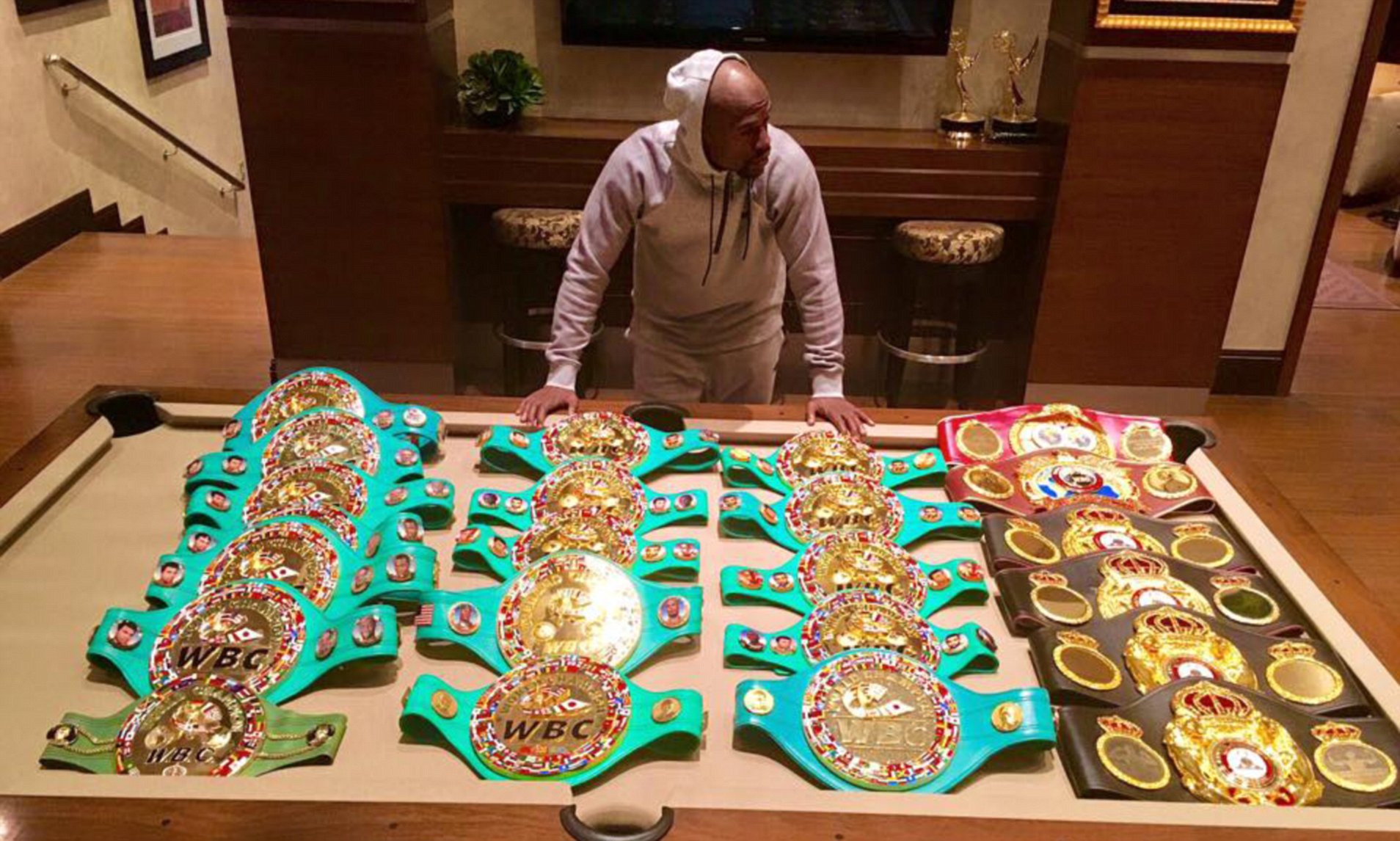Floyd Mayweather is considered one of the greatest boxers in history. In his professional career, he’s amassed 50 wins and no losses, with 27 knockouts.
And belts. Lots of belts.

One interesting aspect of Floyd’s preparation is his “Calm before the Storm” approach on fight night.
You might think in the hours leading up to a fight, he’d be doing final preparations – working through his game plan, strategizing with his team, studying for the fight.
Not the case.
On May 5, 2012, Mayweather fought (and beat) Miguel Cotto for the Super Welterweight Championship.
Pro wrestler Triple H, a friend of Mayweather’s, was visiting his dressing room before the fight that night. Triple H explains how surprised he was at Mayweathers “pre-fight prep” – the champ was sitting on a couch, watching a basketball game.
When Triple H asked Mayweather what he needed to do to get ready, Mayweather calmly responded:
“I’ve done everything I’m going to do. Nothing I do in the next little bit is going to change anything, so ain’t no use getting worried about it. I’m going to watch this game for a little bit, talk with you if you want, and then I’m going to go win my fight.”
A big reason why Mayweather is a champion:
He knows that when it’s game time, you better have already put in the work during practice.
So let’s apply this to another Classic Common Objection – The Spouse Objection.
“I need to talk to my spouse/boyfriend/partner about the surgery/treatment/whatever.” How often do you hear this in consults?
I’ll estimate at least 1x a day, on average. (This and price are the most common objections that consistently come up with our clients’ prospects.)
Handled properly, you endear yourself to the patient and keep the momentum moving toward surgery. Handled poorly (which happens most often), and you end up losing most of these patients or driving them away to other practices.
We have a number of specific tactics our clients use to identify and handle the spouse objection. (Not enough space to cover those details in this short email, but we cover them in-depth in our team training programs.)
Here’s the big idea:
The best way to avoid the spouse objection is to keep it from coming up in the first place.
How do you do that? Just ask – What Would Floyd Mayweather Do?
He would lay the ground work, do the investigating early in the consult. And because he was prepped, he could proactively handle the spouse objection before it even comes up at the end.
Practically, what this means is: Get to know the prospect’s situation, which includes anyone who may be helping to make this decision.
You need to find out:
- If they are married / in a serious relationship
- Does their spouse know they are here?
- What does their spouse think about this great opportunity?
- Who’s in charge of making this decision?
If you are a counselor, and you are surprised when you receive the spouse objection at the end of a consult… then you didn’t do the necessary groundwork early on in the encounter.
Mayweather prepares for months before a fight. And when he gets in the ring, there are no “surprise” left hooks that he isn’t expecting.
In the same way, your preparation leads up to (and through) the consult. Don’t let someone throw a “surprise left hook” of a spouse objection at the end.
Do the work beforehand, proactively overcome the spouse situation before it ever becomes an objection, and you set yourself up for success.
You probably won’t get to 100% win percentage like Mayweather, but you’ll stack on a few extra treatments per week.
The man nicknamed “Money” Mayweather would certainly approve.
– Troy
PS – If you want more in-depth training on this (the spouse objection stuff, not boxing), book a call here.